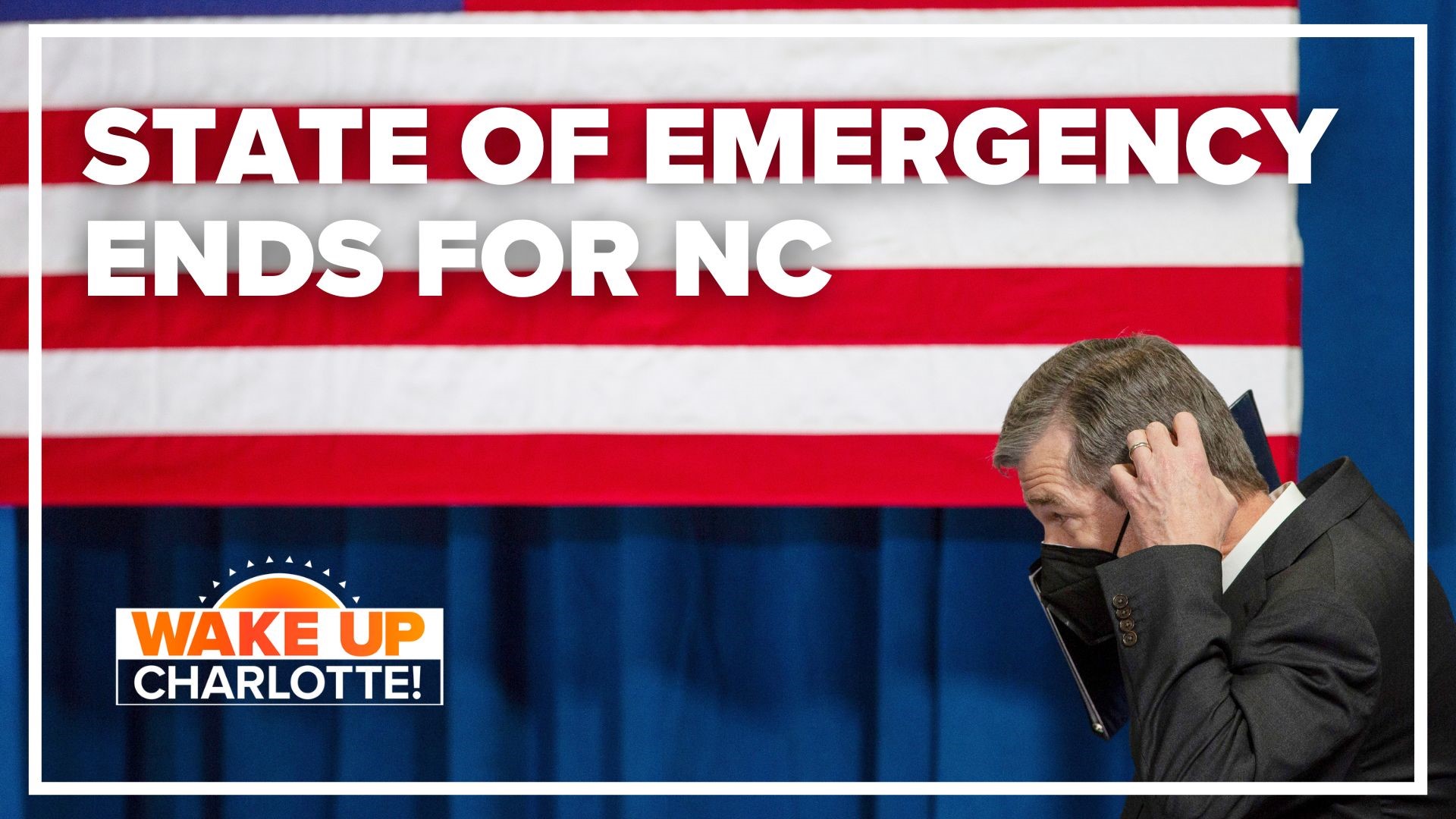CHARLOTTE, N.C. — North Carolina's COVID-19 state of emergency will end Monday, more than two years after the onset of the pandemic.
While most people likely won't notice a difference in their daily lives, the COVID-19 state of emergency has helped the state get through the pandemic over the last two-and-a-half years.
Some measures that protected people during the pandemic will finally come to an end. And when most people think of a state of emergency, things like masks, vaccines and social distancing may come to mind.
But North Carolina's order did so much more than that. Let's connect the dots.
Back in March 2020, Gov. Roy Cooper declared a state of emergency over a new virus that was slowly spreading across the U.S. and Carolinas.
Consumer protections
The order provided some consumer protections, banning price gouging during the pandemic.
It also allowed truck drivers to work longer hours to help deliver critical medical supplies to the front lines. Health care systems also benefited from the order with greater staff flexibility.
WCNC Charlotte is always asking "where's the money?" If you need help, reach out to WCNC Charlotte by emailing money@wcnc.com.
Multiple extensions
Cooper kept extending the order for more than two years as the virus lingered in North Carolina. Now all those measures will finally come to an end.
Why now?
Cooper says the latest state budget gives hospitals and medical providers the tools they need to maintain staffing levels while providing vaccines and tests without the emergency order.
Wake Up Charlotte To Go is a daily news and weather podcast you can listen to so you can start your day with the team at Wake Up Charlotte.
SUBSCRIBE: Apple Podcasts || Spotify || Stitcher || TuneIn || Google Podcasts
All of WCNC Charlotte's podcasts are free and available for both streaming and download. You can listen now on Android, iPhone, Amazon, and other internet-connected devices. Join us from North Carolina, South Carolina, or on the go anywhere.

